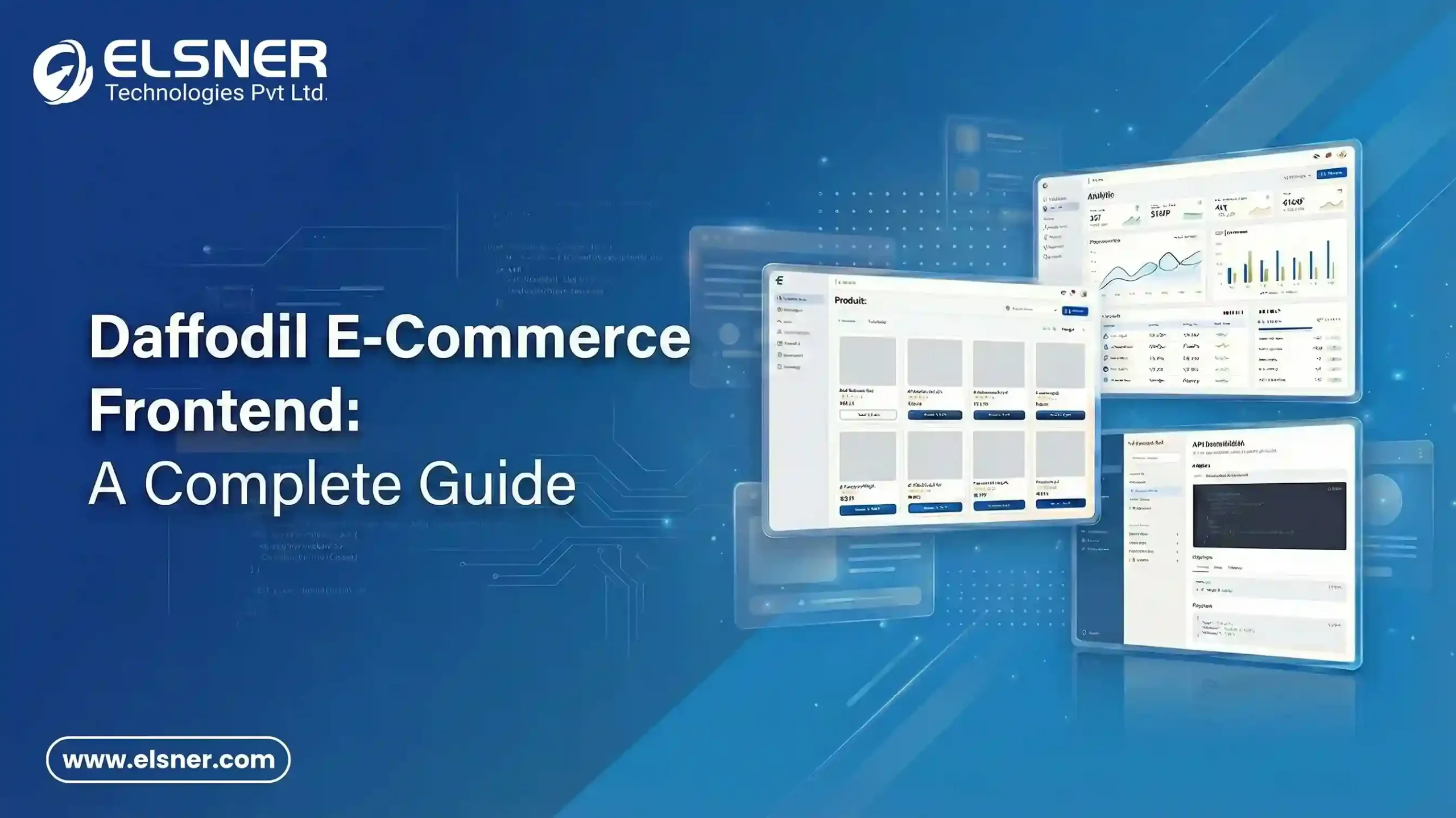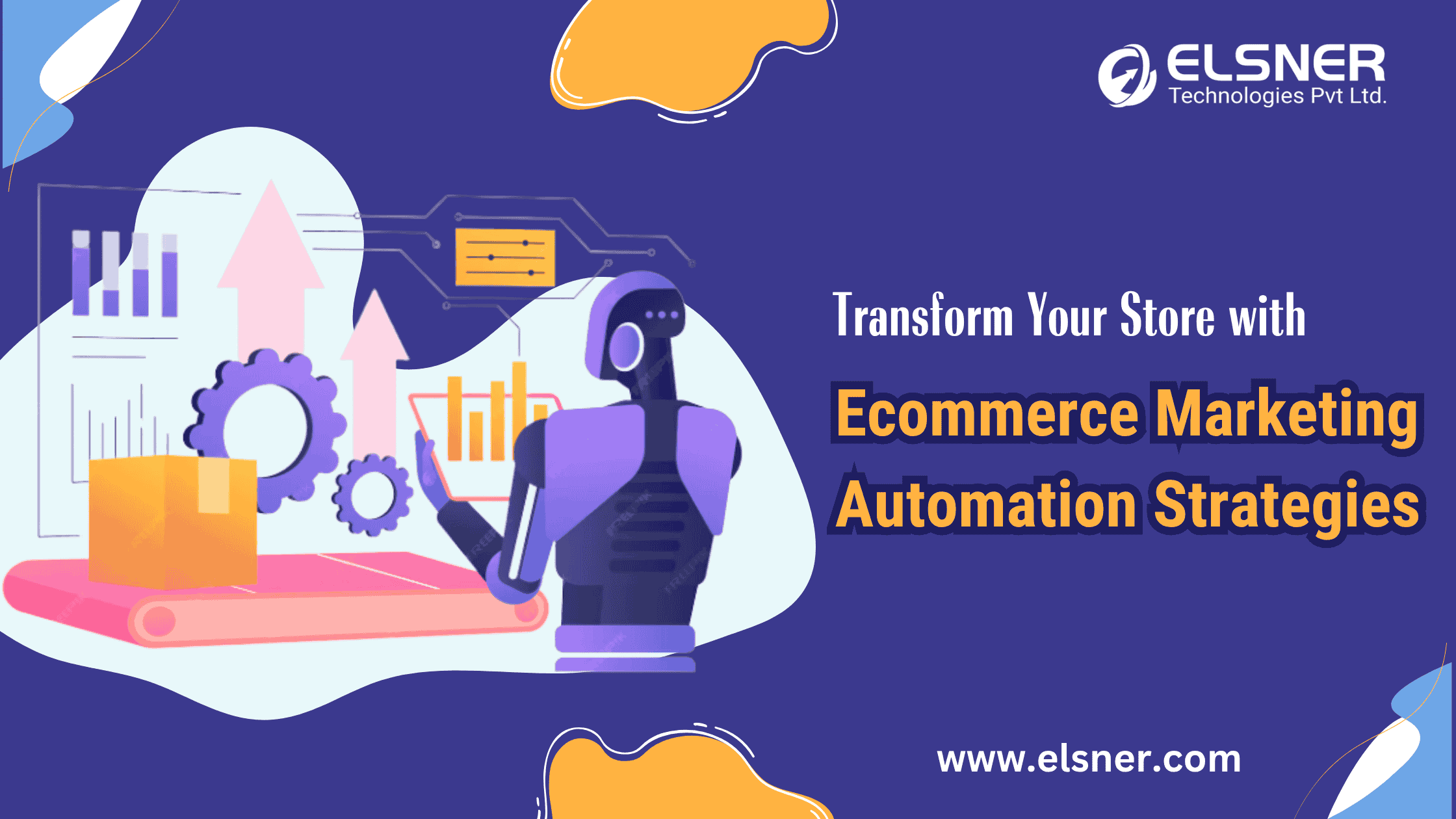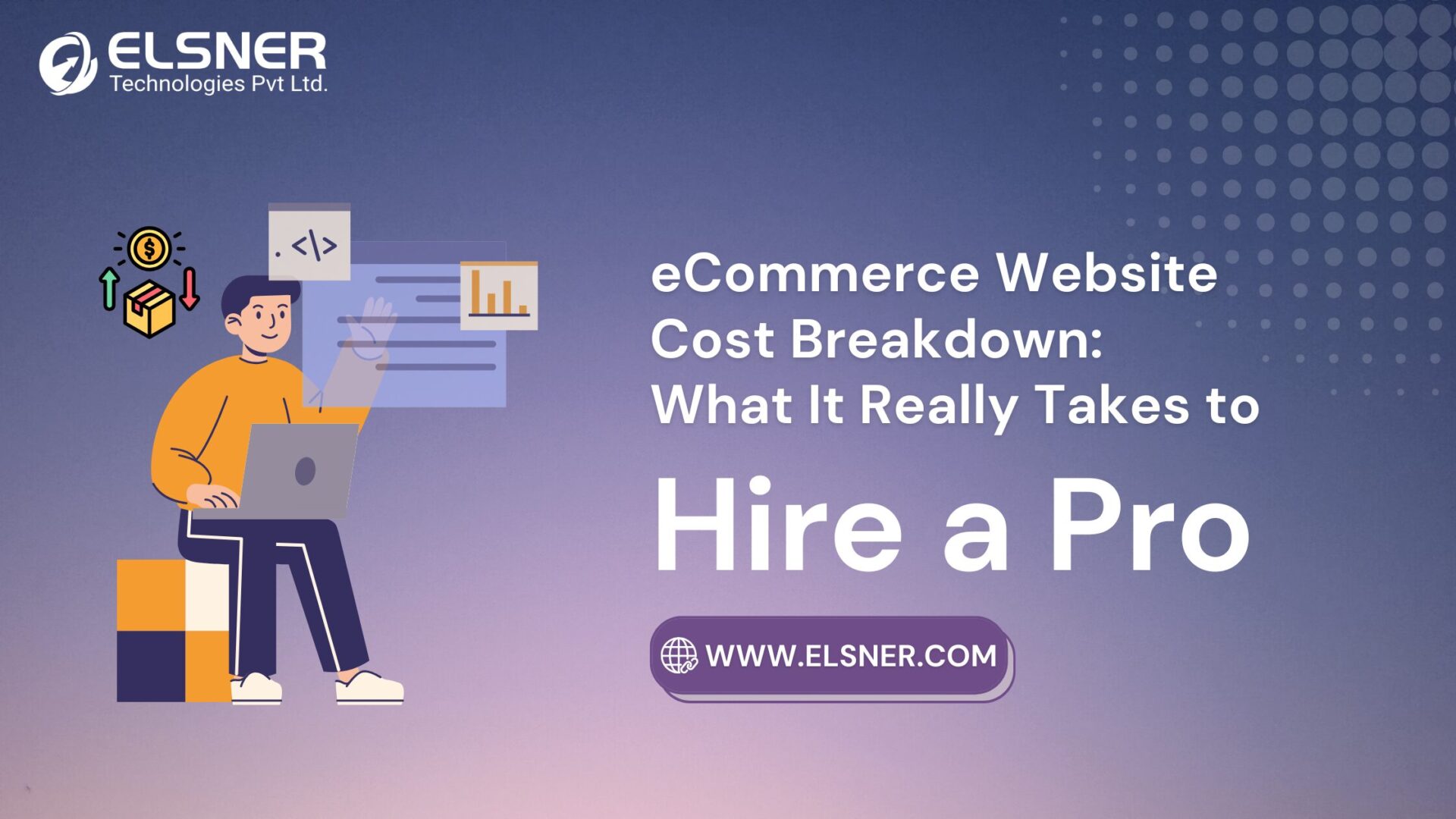- Understanding ERP Systems
- Key Components of ERP Systems
- The Role of ERP in Ecommerce
- Streamlining Operations
- Enhancing Customer Experience
- Data-Driven Decision Making
- Real-World Examples
- Shopify Plus
- Oracle NetSuite
- The Benefits of ERP for Ecommerce Businesses
- Improved Efficiency
- Better Inventory Management
- Enhanced Financial Management
- Scalable Solutions
- Challenges and Considerations
- Cost
- Customization
- Integration
- Data and Insights
- Future Trends in ERP for Ecommerce
- Artificial Intelligence and Machine Learning
- Cloud-Based ERP Solutions
- Integration with IoT
- Enhanced User Experience
- Advanced Analytics and Reporting
- Best Practices for Implementing ERP in Ecommerce
- Conduct a Thorough Needs Assessment
- Choose the Right ERP Solution
- Plan for Data Migration
- Involve Key Stakeholders
- Provide Training and Support
- Monitor and Evaluate Performance
- Conclusion
- FAQ’s
- 1. What is ecommerce ERP software and how does it benefit online businesses?
- 2. How does an ecommerce ERP system streamline order processing and inventory management?
- 3. What are the key features to look for in the best ERP for ecommerce?
- 4. How can ERP for ecommerce companies improve customer relationship management?
- 5. What are the advantages of integrating an ecommerce ERP solution into your business operations?
- 6. Which industries benefit most from ecommerce ERP software implementation?
- 7. What’s the difference between cloud-based ERP and on-premise solutions?
- 8. What are the implementation costs and ROI expectations for ecommerce ERP systems?
- 9. How do you choose between different ecommerce ERP solution providers?
- 10. What are the latest trends in ERP for ecommerce companies for 2025?
- 11. How can small ecommerce businesses benefit from ERP software without going overbudget?
Enterprise Resource Planning (ERP) systems have become indispensable tools for Ecommerce businesses looking to streamline operations, enhance customer experiences, and make data-driven decisions. By integrating various business processes into a single system, ERP solutions provide the foundation for efficiency, scalability, and growth.
One of the most effective tools in achieving these goals is Enterprise Resource Planning (ERP) systems. By integrating various business processes into a single, unified system, ERP solutions can streamline operations, enhance efficiency, and provide valuable insights that drive growth. This blog delves into the transformative power of ERP in Ecommerce, backed by relevant data, insights, and examples.
Understanding ERP Systems
Enterprise Resource Planning (ERP) systems are software platforms that integrate various business processes and functions into a single comprehensive system. These processes typically include inventory management, order processing, customer relationship management (CRM), finance, human resources, and supply chain management. By centralizing data and automating workflows, ERP systems help businesses operate more efficiently and make informed decisions based on real-time data.
Key Components of ERP Systems
- Inventory Management: Tracks inventory levels, orders, sales, and deliveries. Helps in managing stock levels and reducing carrying costs.
- Order Processing: Automates order entry and processing, reducing errors and speeding up fulfillment.
- Customer Relationship Management (CRM): Manages customer interactions and data throughout the customer lifecycle.
- Financial Management: Handles accounting, budgeting, and financial reporting.
- Human Resources (HR): Manages employee records, payroll, and benefits.
- Supply Chain Management: Optimizes the flow of goods and services from suppliers to customers.
The Role of ERP in Ecommerce
Streamlining Operations
In Ecommerce, where speed and efficiency are paramount, ERP systems play a crucial role in streamlining operations. By integrating various business functions, ERP systems eliminate data silos and ensure that all departments work with the same information. This leads to improved coordination, faster decision-making, and reduced operational costs.
For instance, an ERP system can automatically update inventory levels as orders are processed, ensuring that stock information is always accurate. This prevents stockouts and overstock situations, ultimately improving customer satisfaction.
Enhancing Customer Experience
Customer experience is a critical factor in the success of any Ecommerce business. ERP systems enhance customer experience by providing a seamless and consistent experience across all touchpoints. With a unified view of customer data, businesses can personalize interactions, offer relevant product recommendations, and respond to inquiries promptly.For example, if a customer contacts support about an order, the representative can quickly access the order history, shipment status, and any previous interactions, enabling them to provide a swift and accurate response.
Data-Driven Decision Making
One of the most significant advantages of ERP systems is the ability to make data-driven decisions. With real-time access to comprehensive data, businesses can analyze trends, monitor key performance indicators (KPIs), and identify areas for improvement. This leads to more informed decisions and better strategic planning.A case in point is the ability to analyze sales data to identify which products are performing well and which are not. This information can be used to adjust marketing strategies, manage inventory, and plan future product launches.
Real-World Examples
Shopify Plus
Shopify Plus, a leading Ecommerce platform, integrates with various ERP systems to provide businesses with a unified view of their operations. By connecting their online stores with ERP systems, Shopify Plus users can automate inventory updates, synchronize order processing, and gain insights into their business performance.
One notable example is Gymshark, a fitness apparel brand that uses Shopify Plus and ERP integration to manage its rapidly growing business. With ERP, Gymshark has streamlined its supply chain, improved inventory management, and enhanced its customer experience, contributing to its impressive growth.
Oracle NetSuite
Oracle NetSuite is a popular ERP solution for Ecommerce businesses. It offers a range of features tailored to the needs of online retailers, including order management, inventory control, and CRM. One success story is that of the furniture retailer Lovesac, which uses Oracle NetSuite to manage its complex operations.
With NetSuite, Lovesac has achieved better inventory visibility, improved order accuracy, and enhanced financial reporting. The ERP system has also enabled Lovesac to scale its operations efficiently as the business grows.
The Benefits of ERP for Ecommerce Businesses
Improved Efficiency
By automating repetitive tasks and integrating various business functions, ERP systems significantly improve operational efficiency. This allows businesses to focus on strategic initiatives rather than getting bogged down by administrative tasks.
Better Inventory Management
Accurate inventory management is crucial in Ecommerce. ERP systems provide real-time visibility into stock levels, helping businesses maintain optimal inventory levels, reduce carrying costs, and prevent stockouts.
Enhanced Financial Management
With integrated financial management tools, ERP systems help businesses maintain accurate financial records, streamline accounting processes, and ensure compliance with regulations. This leads to better financial planning and analysis.
Scalable Solutions
As Ecommerce businesses grow, their operational complexity increases. ERP systems are scalable, meaning they can grow with the business and handle increased transaction volumes and more complex processes.
Challenges and Considerations
While ERP systems offer numerous benefits, implementing them can be challenging. Businesses need to consider factors such as cost, customization, and ERP integration with existing systems. A successful ERP implementation requires careful planning, a clear understanding of business processes, and support from all stakeholders.
Cost
ERP systems can be expensive to implement and maintain. Businesses need to consider the total cost of ownership, including software licenses, hardware, and ongoing support.
Customization
Every business has unique needs, and to fit these requirements. Customization can be time-consuming and costly, so it’s essentiERP systems often require customizational to choose a solution that aligns closely with the business’s needs.
Integration

Data and Insights
To illustrate the impact of ERP systems on Ecommerce, let’s look at some key statistics and data points:
1. Efficiency Improvement: According to a report by Panorama Consulting, organizations that implement ERP systems can see a 20-30% improvement in operational efficiency.
2. Customer Satisfaction: A survey by Aberdeen Group found that companies using ERP systems experienced a 19% increase in customer satisfaction due to improved order accuracy and faster response times.
3. Inventory Management: Research by ARC Advisory Group indicates that businesses using ERP systems can reduce inventory carrying costs by 25-30%.
4. Financial Performance: A study by Forrester Research shows that businesses using ERP systems can achieve a 15% reduction in operational costs and a 10-15% improvement in financial performance.

Future Trends in ERP for Ecommerce
As technology continues to evolve, ERP systems are also advancing to meet the dynamic needs of Ecommerce businesses. Here are some future trends in ERP systems that are likely to shape the Ecommerce landscape:
Artificial Intelligence and Machine Learning
Artificial Intelligence (AI) and Machine Learning (ML) are becoming integral components of modern ERP systems. These technologies can help Ecommerce businesses by providing advanced data analytics, predictive insights, and automation. AI-powered ERP systems can analyze large datasets to identify patterns and trends, helping businesses make more informed decisions.
For example, AI can be used to forecast demand more accurately, optimize inventory levels, and personalize customer experiences. Machine learning algorithms can also help in identifying fraudulent activities, improving supply chain efficiency, and enhancing customer service through chatbots and virtual assistants.
Cloud-Based ERP Solutions
Cloud-based ERP solutions are gaining popularity due to their flexibility, scalability, and cost-effectiveness. Unlike traditional on-premise systems, cloud-based ERPs allow businesses to access their data and applications from anywhere, at any time. This is particularly beneficial for Ecommerce businesses that operate in multiple locations or have remote teams.Cloud ERP systems also offer automatic updates and maintenance, reducing the burden on IT departments. They can easily scale up or down based on the business’s needs, making them ideal for growing Ecommerce companies.
Integration with IoT
The Internet of Things (IoT) is another technology that is transforming ERP systems. IoT devices can provide real-time data on inventory levels, shipment status, and equipment performance. By integrating IoT with ERP systems, Ecommerce businesses can gain greater visibility into their operations and improve efficiency.For instance, IoT sensors can track the movement of goods in the warehouse and update the ERP system in real time. This can help in reducing manual errors, optimizing storage space, and ensuring timely order fulfillment.
Enhanced User Experience
Modern ERP systems are focusing more on user experience, offering intuitive interfaces and mobile-friendly applications. This makes it easier for employees to access and use the ERP system, regardless of their technical expertise. Enhanced user experience leads to higher adoption rates and better utilization of the system’s capabilities.
Advanced Analytics and Reporting
Advanced analytics and reporting capabilities are becoming a standard feature in ERP systems. These tools provide Ecommerce businesses with detailed insights into their operations, helping them identify bottlenecks, measure performance, and make data-driven decisions. Visual dashboards and customizable reports make it easy to monitor key metrics and track progress toward business goals.
Best Practices for Implementing ERP in Ecommerce
Implementing an ERP system can be a complex and challenging process. However, following best practices can help ensure a successful implementation and maximize the benefits of the ERP system. Here are some best practices for Ecommerce businesses:
Conduct a Thorough Needs Assessment
Before selecting an ERP system, conduct a thorough assessment of your business needs and requirements. Identify the key processes that need improvement and the specific features and functionalities you require from the ERP system. This will help you choose a solution that aligns with your business goals.
Choose the Right ERP Solution
Selecting the right ERP solution is critical to the success of the implementation. Consider factors such as scalability, integration capabilities, user experience, and vendor support. Evaluate multiple options, request demos, and seek feedback from other Ecommerce businesses to make an informed decision.
Plan for Data Migration
Data migration is a crucial aspect of ERP implementation. Plan for the migration of data from existing systems to the new ERP system. Ensure data accuracy and integrity by cleaning and validating the data before migration. Develop a detailed migration plan and allocate sufficient time and resources for the process.
Involve Key Stakeholders
Involving key stakeholders from different departments in the implementation process is essential. Their input and feedback can help ensure that the ERP system meets the needs of all users. Additionally, involving stakeholders fosters a sense of ownership and increases user adoption.
Provide Training and Support
Comprehensive training and support are vital to the successful adoption of the ERP system. Provide training sessions for all users, focusing on their specific roles and responsibilities. Offer ongoing support and resources to address any issues or questions that arise during and after the implementation.
Monitor and Evaluate Performance
After the ERP system is implemented, continuously monitor and evaluate its performance. Track key metrics and KPIs to measure the system’s impact on your business operations. Gather feedback from users and identify areas for improvement. Regularly update and optimize the ERP system to ensure it continues to meet your business needs.
Conclusion
As technology continues to evolve, ERP systems are also advancing, incorporating AI, cloud computing, IoT, and advanced analytics to meet the dynamic needs of Ecommerce businesses. Implementing an ERP system requires careful planning, a thorough needs assessment, and involvement from key stakeholders, but the potential benefits are substantial.
Investing in the right ERP solution can be a game-changer for Ecommerce businesses, enabling them to navigate the complexities of modern commerce and achieve their strategic goals. With the right tools and best practices, Ecommerce businesses can unlock new levels of efficiency, agility, and profitability, setting the stage for long-term success.
FAQ’s
1. What is ecommerce ERP software and how does it benefit online businesses?
Ecommerce ERP software compiles all your business operations into one system. It manages inventory, orders, customers, and finances from a single platform.
Key benefits include:
- 20-30% faster operations
- Real-time business data
- 15% reduction in costs
- 19% higher customer satisfaction
- Easy business scaling
2. How does an ecommerce ERP system streamline order processing and inventory management?
An ecommerce ERP system automates order workflows and tracks inventory in real-time.
- Order processing: Orders flow automatically from all sales channels. Payments, shipping, and tracking updates happen without manual work.
- Inventory management: Stock levels update instantly across all locations. Low stock alerts prevent sellouts. Inventory costs drop 25-30%.
3. What are the key features to look for in the best ERP for ecommerce?
The best ERP for ecommerce should include:
- Real-time inventory tracking
- Multi-channel order processing
- Built-in accounting tools
- Customer management features
- Mobile access
- Direct platform integrations (Shopify, Magento)
- Marketplace connections (Amazon, eBay)
- Smart forecasting and analytics
4. How can ERP for ecommerce companies improve customer relationship management?
ERP for ecommerce companies creates a complete customer view with purchase history, preferences, and interactions in one place. Benefits include:
- faster customer service,
- personalized recommendations,
- automated loyalty programs, and
- better customer retention strategies.
5. What are the advantages of integrating an ecommerce ERP solution into your business operations?
An ecommerce ERP solution eliminates data silos and connects all departments.
Main advantages:
- Consistent information across teams
- Reduced manual errors
- Better cash flow management
- Improved financial reporting
- Scalable growth support
6. Which industries benefit most from ecommerce ERP software implementation?
Ecommerce ERP software works best for:
- Fashion and apparel retailers
- Electronics stores
- Home and garden businesses
- B2B wholesale operations
- Subscription services
- Multi-brand retailers
These industries handle complex inventory and high order volumes.
7. What’s the difference between cloud-based ERP and on-premise solutions?
Cloud-based ERP for ecommerce business:
- Lower upfront costs
- Automatic updates
- Remote access
- Faster setup
On-premise ERP:
- More customization control
- Enhanced data security
- Lower long-term costs
- No internet dependency
8. What are the implementation costs and ROI expectations for ecommerce ERP systems?
Ecommerce ERP system costs:
- Cloud software: $150-$750/user monthly
- Implementation: $50,000-$500,000
- Training: $10,000-$50,000
Expected ROI: 20-30% efficiency improvement, 25-30% inventory cost reduction, payback in 12-24 months.
9. How do you choose between different ecommerce ERP solution providers?
When selecting an ecommerce ERP solution, evaluate:
- Platform compatibility
- Integration capabilities
- Vendor experience with ecommerce
- Customer references
- Support quality
- Implementation timeline
- Customization options
10. What are the latest trends in ERP for ecommerce companies for 2025?
Current ERP for ecommerce companies trends:
- AI-powered analytics
- IoT integration
- Mobile-first design
- Omnichannel commerce
- Social media integration
11. How can small ecommerce businesses benefit from ERP software without going overbudget?
Small ecommerce businesses can use ERP software affordably by:
- Starting with cloud solutions
- Adding features gradually
- Using monthly payment plans
- Beginning with basic modules (inventory, orders, accounting)
- Taking advantage of small business discounts

About Author
Dipak Patil - Delivery Head & Partner Manager
Dipak is known for his ability to seamlessly manage and deliver top-notch projects. With a strong emphasis on quality and customer satisfaction, he has built a reputation for fostering strong client relationships. His leadership and dedication have been instrumental in guiding teams towards success, ensuring timely and effective delivery of services.









